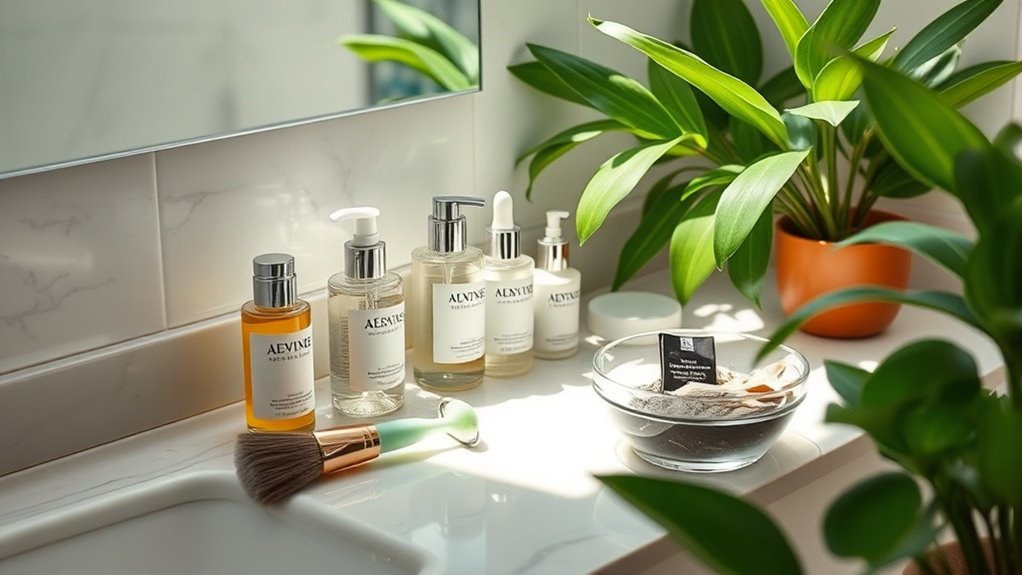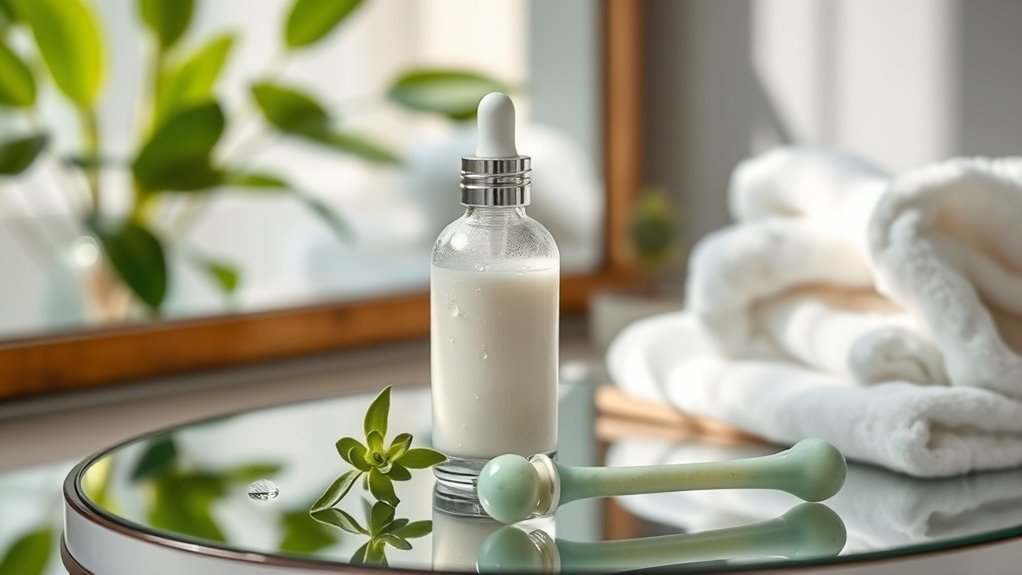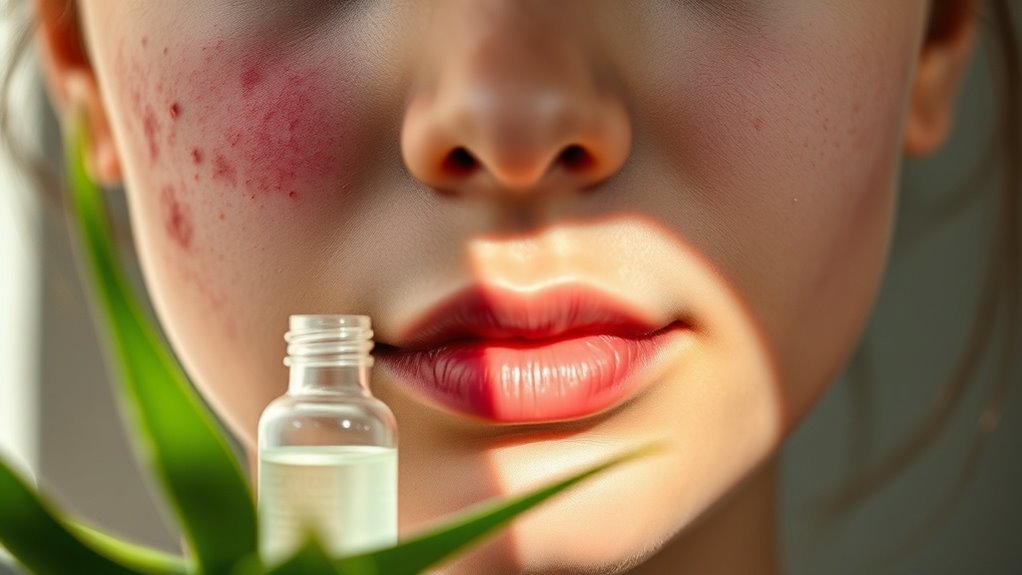The Most Overlooked Cause of Breakouts (And How to Fix It)
You might not realize it, but stress could be the hidden culprit behind your breakouts. As cortisol levels rise, oil production increases, leading to clogged pores and inflammation. While you may focus on diet or skincare, the subtle impact of stress often goes unnoticed. Understanding this connection is crucial for achieving clearer skin. So, what can you do to combat stress and its effects on your complexion?
Key Takeaways
- Stress is a significant but often overlooked cause of breakouts; practicing stress-reduction techniques can help diminish acne.
- Hormonal fluctuations, especially during menstrual cycles or pregnancy, can increase oil production and lead to breakouts; managing these fluctuations is crucial.
- High glycemic index foods and processed sugars can trigger inflammation and exacerbate acne; a balanced diet is essential for skin health.
- Environmental factors such as pollution and humidity contribute to breakouts; using non-comedogenic products and antioxidants can mitigate their effects.
- A consistent skincare routine that includes cleansing, exfoliating, and moisturizing is vital for maintaining skin health and preventing clogged pores.
Understanding the Role of Stress in Breakouts
Have you ever noticed how stress seems to trigger breakouts?
Stress activates the body’s fight-or-flight response, leading to increased cortisol production.
This hormone boosts oil production in your skin, clogging pores and resulting in acne.
Additionally, stress can cause inflammation, further aggravating existing breakouts.
Many people overlook these acne causes, mistakenly attributing their skin issues solely to diet or hygiene.
Recognizing the connection between stress and skin health is crucial for effective management.
Research shows that stress contributes to inflammation, which can worsen your skin condition.
By incorporating stress-reduction techniques into your routine, you can significantly diminish breakouts and improve your skin’s overall appearance.
Don’t let stress be an overlooked factor in your skincare journey.
The Impact of Diet on Skin Health
Your skin reflects what you consume.
High glycemic index foods, processed sugars, and dairy can trigger inflammation and exacerbate breakouts. Additionally, some unseen food triggers may be lurking in your diet, contributing to skin issues you didn’t expect.
Conversely, incorporating antioxidants, omega-3 fatty acids, and vitamins A, C, and E can support skin health and reduce acne. Staying hydrated is crucial, too, as it helps maintain skin elasticity and flushes out toxins.
By prioritizing a balanced diet rich in whole foods, you can significantly improve your skin’s appearance and resilience against breakouts. Evaluate your plate to enhance your skin’s vitality.
Environmental Factors That Contribute to Acne
While you might focus on diet and stress for your skin’s health, environmental factors can play a significant role in triggering acne.
Environmental factors, often overlooked, can significantly impact skin health and contribute to acne breakouts.
Pollution, humidity, and UV exposure can exacerbate skin issues.
Airborne pollutants, such as dust and smoke, clog pores and lead to inflammation.
High humidity levels can increase oil production, creating a breeding ground for acne-causing bacteria.
Additionally, UV radiation can damage skin cells, impairing the skin’s natural barrier. To combat this, remember that never skipping sunscreen is essential for protecting your skin from harmful UV rays.
To mitigate these effects, consider using a gentle cleanser to remove impurities, applying non-comedogenic products, and incorporating antioxidants to protect your skin from environmental stressors.
Hormonal Fluctuations and Their Effects
Environmental factors aren’t the only contributors to skin breakouts; hormonal fluctuations can significantly impact your skin’s health as well.
Changes in hormones—such as during menstrual cycles, pregnancy, or stress—can lead to increased oil production and clogged pores.
Understanding these effects is crucial for managing breakouts effectively.
Consider the following:
-
Elevated androgen levels can trigger sebum overproduction.
-
Estrogen fluctuations may influence skin hydration.
-
Stress hormones can exacerbate inflammation.
-
Hormonal imbalances can lead to persistent acne.
-
Dietary choices can also play a role in amplifying hormonal effects on your skin.
The Importance of Proper Skincare Routine
How can a proper skincare routine transform your skin’s health and help prevent breakouts?
By consistently cleansing, exfoliating, and moisturizing, you maintain your skin’s natural barrier, preventing clogged pores and excess oil production.
Choose products tailored to your skin type to effectively address specific concerns.
Incorporating targeted treatments, like salicylic acid or benzoyl peroxide, can further combat acne. Salicylic acid is particularly effective due to its ability to penetrate pores deeply, helping to clear out impurities and reduce inflammation.
Don’t forget sunscreen; UV damage can exacerbate skin issues.
Finally, establishing a routine helps regulate oil production and promotes cell turnover, ultimately leading to clearer skin.
Prioritize your skincare regimen to enhance overall skin health and minimize breakout occurrences.




